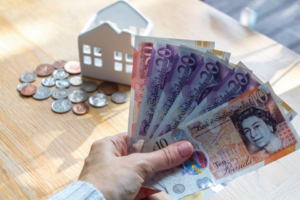Airbnb tax obligations
Whether you’re new to the world of Airbnb renting or you’ve been hosting guests for some time, the spectre of tax will surely have raised its head. Now that Airbnb/HMRC data sharing has been made official, many hosts are looking to ensure they don’t fall foul of the tax man. So what are your obligations as an Airbnb host?
New legislation
As of 1 January 2024, online platforms such as Airbnb are required to report the earnings of Airbnb UK hosts to HMRC for tax purposes. For those who already report their rental earnings from Airbnb, or for those who earn less than £1,000 in income from the platform, things more or less remain the same. Actually, this new legislation formalises something that was already happening on ad hoc basis, and it’s been introduced to help businesses while clamping down on tax evasion.
While most hosts won’t need to do anything differently, it’s important to be clear on what does and does not constitute taxable income (and how it should be reported).
How much Airbnb tax am I liable for?
As an Airbnb host, you have two rental options:
- Rent out a secondary property (one that you don’t live in)
- Rent out a room in your place of residence
Your Airbnb tax obligations will depend on which of the above scenarios applies to you, and the level of income it yields.
- With secondary property rentals, you can earn up to £1,000, tax-free per year. Any earnings over this amount will be subject to Income Tax.
- If you rent a room in your existing property, you can earn up to £7,500, tax-free per year (or £3,750 if letting jointly). Anything over this figure will be subject to Income Tax.
If you cross these thresholds, you will need to file a Self Assessment tax return. The tax you owe will then be calculated and you will need to make payment by 31 January following the year for which you have completed the return.
Other tax considerations
For most people, the latest Airbnb UK regulations around tax will begin and end with Income Tax. However, letting several properties or earning over a certain amount each tax year may be liable for National Insurance Contributions (NICs). Properties are also subject to Council Tax, and if you’re selling a second property you will need to pay Capital Gains Tax on the profit.
However, tax advantages are available if, for instance, you make your property available to let for at least 210 days per tax year, and you let it for at least 105 days per tax year.
So, as an Airbnb host, how do you ensure that you pay the requisite amounts of tax while taking advantage of tax benefits?
Accountants for Airbnb hosts
At Ibiss & Co, our accountants for Airbnbs will help you understand your tax liabilities, and can even complete your Self Assessment for you. We make it easier for hosts to focus on the aspects of the business that most engage them, and can offer tax advice whenever necessary. Chat to a member of our team to find out more. We have offices in Barking, Tooting and Walsall.




